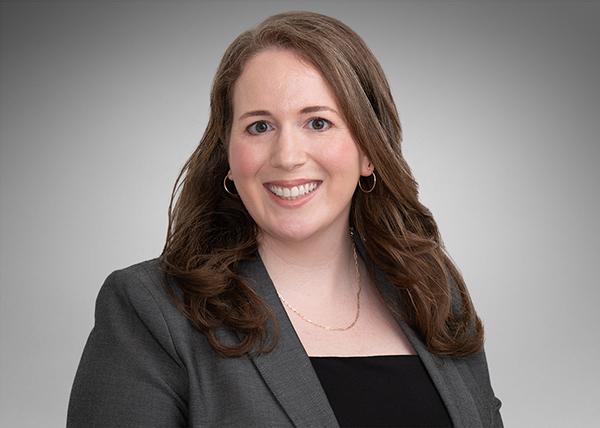On July 26, 2022, the Eighth Circuit issued a decision in U.S. ex rel. Cairns v. D.S. Medical LLC, No. 20-3009, 2022 WL 2930946 (8th Cir. July 26, 2022) (“Opinion”) interpreting the causation standard necessary to establish that a claim is “false or fraudulent” under the False Claims Act (“FCA”) because it “includes items or services resulting from a violation” of the Anti-Kickback Statute (“AKS”). In a significant rejection of the government’s position regarding the result of the 2010 amendments to the AKS, the Eight Circuit held that based on the plain meaning of the statutory language, a plaintiff relying on an alleged violation of the AKS to establish falsity under the FCA must show “but-for” causation, meaning that but-for the alleged kickback, the claims at issue would not have included the “items or services” that were the subject of the alleged kickback. Opinion at 5.
The Cairns case concerns the relationship between Dr. Sonjay Fonn, a neurosurgeon in Missouri, and D.S. Medical, an implant distribution company wholly owned by Dr. Fonn’s fiancée. Dr. Fonn selected D.S. Medical to order spinal implants that his practice uses to treat patients with degenerative-disc disease. D.S. Medical earned large commissions from manufacturers for every sale, including $1.3 million from one particular manufacturer. In turn, Dr. Fonn received an offer to purchase company stock from that same manufacturer. Once the stock purchase was complete, Dr. Fonn ordered more implants. Opinion at 5. Physicians in other practices filed complaints against both Dr. Fonn and D.S Medical under the FCA and other laws. The United States intervened and filed its own complaint, in part alleging that the couple and their businesses submitted false or fraudulent Medicare and Medicaid claims after violating the AKS. Opinion at 5-6.
The case went to a jury trial in the U.S. District Court for the Eastern District of Missouri. To establish falsity under the FCA, the government relied exclusively on language added to the AKS in 2010, which states that “a claim that includes items or services resulting from a violation of this section constitutes a false or fraudulent claim.” 42 U.S.C. § 1320a-7b(g). The District Court instructed the jury that the government could establish falsity or fraud if it proved “that the [Medicare or Medicaid] claim failed to disclose the [a]nti-[k]ickback [s]tatute violation.” Opinion at 6. The jury returned a verdict for the government, and the District Court awarded treble damages and statutory penalties in the amount of $5,495,931.22. Id.
Defendants appealed, arguing in part that the Eighth Circuit must reverse the jury verdict because the District Court failed to instruct the jury on but-for causation. The Eighth Circuit agreed, holding that the lower court’s jury instructions brushed aside causation, and therefore misinterpreted the 2010 amendment.
The Eighth Circuit focused on the plain, textual meaning of the words “resulting from.” In common and ordinary usage, the participle phrase “resulting from” must represent “a but-for causal relationship.” Opinion at 10. The Eighth Circuit explained that the Supreme Court reached the same outcome when interpreting the nearly identical term, “results from” in the Controlled Substances Act. See Burrage v. United States, 571 U.S. 204, 210–11 (2014). In Burrage, the Supreme Court held that a statute specifying an enhanced sentence whenever “death or serious bodily injury results from the use of [a distributed controlled] substance” imposes a requirement of actual causality, meaning that the use of drug must have been a “but-for cause of the death. Id. (citing 21 U.S.C. § 841(b)(1)(A)–(C)) (emphasis added). Although the context is different, the Eighth Circuit held that the meaning of “resulting from” here is the same, and “[t]racking the textbook definition,” the government must prove that “defendants would not have included particular ‘items or services’ absent the illegal kickbacks.” Opinion at 11.
The Eighth Circuit rejected the government’s arguments against a “but-for” requirement. First, the government argued that the term “resulting from” merely requires that the illegal kickbacks “tainted” the “claim[] for goods or services” or the anti-kickback “violation itself may have been a contributing factor.” Opinion at 11. The Eighth Circuit held that the government’s proposed interpretations fail to adequately consider the “unambiguously causal” nature of the term “resulting from.” Opinion at 12. Second, the government turned to contextual history of the FCA, arguing that some pre-2010 case law and the legislative history support that the mere non-disclosure of an AKS violation is sufficient to make a claim “false or fraudulent” under the FCA, regardless of whether a causal relationship existed. Opinion at 12-13. The Eighth Circuit once again returned to the words of the statute to reject the government’s argument, holding that, “[a]lthough the government might have preferred one of these other alternatives, it is our job to interpret Congress’s actual words.” Opinion at 13.
In adopting the but-for causal standard, the Eighth Circuit also recognized that its position is inconsistent with the Third Circuit. Specifically, in United States ex rel. Greenfield v. Medco Health Solutions, Inc., 880 F.3d 89 (3d Cir. 2018), the Third Circuit held that although the FCA’s “resulting from” language requires some “link,” it did not require that the plaintiff show that a kickback, “actually influenced a patient’s or medical professional’s judgment.” Id. at 96–97. Although the Eighth Circuit explained that it understands the Third Circuit’s position that but-for causation is not necessary, the Eighth Circuit would not adopt an approach that relies on legislative history and the intent of the drafters, at the expense of the plain meaning of the statutory text. Opinion at 13.
The Eighth Circuit remanded the case for a new trial. Id.
The Eight Circuit’s adoption of the plain reading of the statutory text is a significant development for potential FCA defendants. If you have any questions concerning the material discussed in this client alert, please contact the members of our False Claims Act practice.
Back
Back






